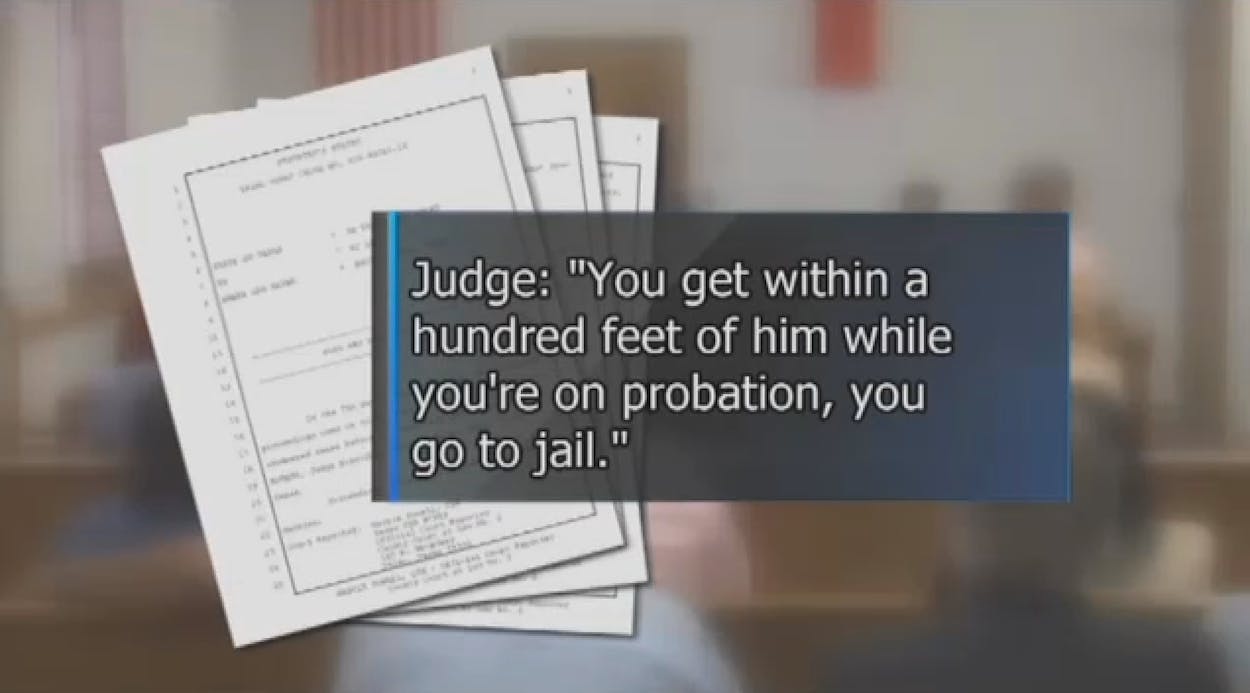In July, Josten Bundy of Tyler was facing a misdemeanor assault charge for getting into a fight with his girlfriend’s ex-boyfriend. During the sentencing hearing, Smith County Judge Randall Rogers gave Bundy a choice—he could get married to his girlfriend or spend fifteen days in jail. Fearing that he’d lose his job if missed two weeks of work, Bundy got hitched. Even though the couple says they intended to eventually marry each other, both Bundy and his girlfriend, Elizabeth Jaynes, were upset that they didn’t get to dictate the terms and timing of their nuptials.
The somewhat archaic criminal punishment naturally raised eyebrows. New York Daily News picked up on the story, it washed up on the other side of the pond, and even Texas Monthly weighed in, giving Rogers, the presiding judge over the case, a Bum Steer award last month. The strange tale gets stranger. Rogers is now back in the news, with multiple couples coming forward to lodge complaints that they were also told—outright or with innuendo—to get married or spend time behind bars.
KLTV, the ABC affiliate for East Texas, found some other couples with accounts similar to Bundy and Jaynes. In July, Michelle Powell of Chandler and her fiancé were facing misdemeanor shoplifting charges for failing to pay for $100 worth of goods through a self-checkout line. Powell was facing two years of probation, and Judge Rogers allegedly said that if Powell got within 100 feet of her fiancé it would violate her probation, and she would go to jail. To circumvent this, she could get married. The judge asked her if they wanted to get hitched, and the couple agreed in the courthouse. “That made me cry, you know, that that’s my proposal,” Powell told KLTV. “I was very scared. Having never been in trouble, it was just a different experience for me.” Rogers gave the couple two weeks to get married, they did, and ten days after the wedding, they received a call notifying them that charges have been dismissed.
Powell told KLTV that while she loves her new husband and all, you know, “it’s like a life sentence.” And “even though I don’t mind being married for the life, it wasn’t supposed to be forced on me. It’s hard that you didn’t get to plan it that way you wanted to plan it.”
In 2012, Rogers allegedly gave Frankston resident Benjerman Bull a similar ultimatum, giving him and his live-in girlfriend, who were facing a misdemeanor theft charge, thirty days to either get married, get separated, or stay together and go to jail.
Bull’s father told KLTV that he found the whole arrangement distressing and so did his son. “It made it worse on his emotions,” he said. “He was under distress all the time. It created more financial and emotional problems.” In a tragic turn, Bull suffered a severe asthma attack four months after the marriage. Bull’s father told KLTV that the marriage allowed his son’s wife “to keep him alive longer and for no reason. My son would not have wanted to live that way.” Bull died in 2013.
Adding fuel to the fire, in August the Freedom From Religion Foundation filed a formal complaint against Judge Rogers with the Texas State Commission on Judicial Conduct. The FFRF is alleging that on top of forcing Bundy to get married within 30 days, the judge also required him to write a Bible verse 25 times a day. The Bible verse in question is Proverbs 26:27, and it reads “If a man digs a pit, he will fall into it.”
“Judges cannot require people to get married or force them to write bible verses,” says the FFRF staff attorney Sam Grover. “Judge Rogers’ conduct was illegal and he should face serious consequences for it. His actions demonstrate a religious bias with significant implications for any nonreligious or non-Christian litigants appearing before him.”
Judge Rogers has declined to comment on his practices and has recused himself from the Bundy case after getting negative media attention.
Though Rogers’ brand of law and order harkens to another era, the counter-argument is that he’s giving couples a way to stay together and out of jail. And if the Commission on Judicial Conduct finds any wrongdoing on the judge’s part, maybe they can have him write out Matthew 7:1-2.






